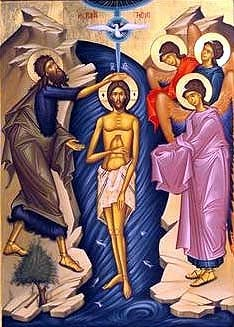Now He was teaching in one of the synagogues on the Sabbath. And there was a woman who had had a spirit of infirmity for eighteen years; she was bent over and could not fully straighten herself. And when Jesus saw her, he called her and said to her, “Woman, you are freed from your infirmity.” And He laid His hands upon her, and immediately she was made straight, and she praised God. But the ruler of the synagogue, indignant because Jesus had healed on the Sabbath, said to the people, “There are six days on which work ought to be done; come on those days and be healed, and not on the Sabbath day.” Then the Lord answered him, “You hypocrites! Does not each of you on the Sabbath untie his ox or his ass from the manger, and lead it away to water it? And ought not this woman, a daughter of Abraham whom Satan bound for eighteen years, be loosed from this bond on the Sabbath day?” As He said this, all His adversaries were put to shame; and all the people rejoiced at all the glorious things that were done by Him.
Luke 13:10-17 (10th Sunday of Luke)
There are lots of “rules” in Orthodoxy. There are rules that govern fasting, time of worship, frequency of worship, set up of the church sanctuary, and many, many more. Just like in the Old Testament, there were 613 “commandments,” rules that covered just about anything one could think of.
Well, one of the most important commandments, in fact, it made the top Ten Commandments, was to remember the Sabbath and keep it holy. It was customary for people at the time of Jesus to do NO work on the Sabbath. There was no farming or gathering or cleaning or cooking done on the Sabbath. In the Gospel lesson today, Jesus healed a woman who had been sick for eighteen years, and He healed her on the Sabbath. The ruler of the synagogue was angry that Jesus had healed on the Sabbath, claiming that healing was “work” and it should not be done on the Sabbath. Jesus countered with the example that people would water their animals on the Sabbath if they were thirsty, so why would it be inappropriate for a woman to be healed on the Sabbath?
The greatest commandment of Christ was that we should love—love Him and love one another. It is never wrong to love. A parishioner recently apologized for being late to church because she stopped to help someone—she stopped to show love to someone who needed some assistance. Should I have been mad at her for being late because of that?
There are lots of beautiful churches that are adorned with nice icons and ornate decorations that are empty of parishioners. There are lots of parishioners who go to churches but who never engage in service activities toward others. There is a place for rules, to be sure. There is nothing wrong with having a beautiful church, or being part of a beautiful liturgy. But there is something wrong when faith boils down to adherence about rules, and clinging to externals and there are no expressions of love that accompany these things.
I wear ornate vestments to celebrate the Liturgy. I like my vestments (I don’t get to go shopping for clothes like everyone else, so I shop for vestments). But my vestments are not the key to my salvation. I could have ugly vestments and have a beautiful heart. I could have beautiful vestments and an ugly heart. I believe that God is concerned more for our heart than our clothes, and more for our intentions than our knowledge.
I remember years ago, when I was about to get ordained into the priesthood, there was a controversy about whether priests should have beards or not (I guess this is still a controversial subject). I do not have a beard. A wise hierarch of the church said to me, “A good beard isn’t going to get you into heaven, and not having a beard is not going to keep you out. It’s how you live out your priesthood that matters.” I have never forgotten those words.
Indeed we will be saved by our conduct, not the rules. Because there is only one rule that counts in the end—to love. Jesus showed love for someone who desperately needed healing. So He healed her. He didn’t wait even one more moment to do for her what she needed.
The most succinct definition of sin is failure to love. An expression of Christ-like love is never a sin. Even if you have to occasionally “break a rule” to do so.
Lord, as a weapon against the Adversary You have given us Your holy Cross. Gripped with fear he trembles unable to endure to look upon its might, because it raises the dead, and death itself it neutralized. For this reason we adore Your three-day burial and rising again. (Third Resurrectional Praise, Matins, Plagal 4th Tone, Trans. by Fr. Seraphim Dedes)
It’s never wrong to extend Christ-like love to someone.

